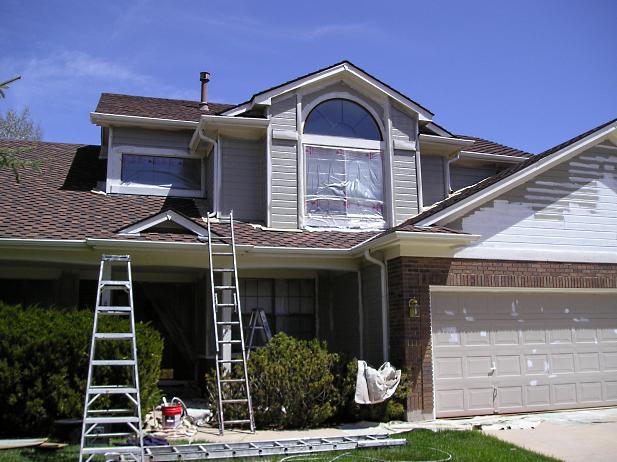The outside of your house is one of the most important parts of it because it is exposed to the elements. Constant exposure to rain, hot sunshine, snow, and strong winds can easily take their toll and the outside of any home can look terrible after a while unless it is always well maintained.
For this reason, it is always a good idea to make sure that whatever work you decide to do is of high quality and done properly. Of course you want your home to look good, but its purpose is also to protect you and keep you warm, safe, and dry. If you consider that only a few layers of paint, primer, and caulking lie between you and the elements, that is enough for you to take the importance of good exterior painting seriously.
For this reason, this may well be a task that you would prefer to delegate to other people. Unless you are particularly gifted at DIY, this is not the kind of job to muddle your way through. Painting the outside of your house can be quite hazardous because you may have to climb up long ladders to reach the top, as well as potentially very messy. For this reason, it may be worth it to spend the extra money for a professional to do this for you.
If, however, you either do not have the budget to take a company to do the work for you or you are confident enough to undertake this project on your own, here are a few tips:
- Take a look at the surfaces that you will need to paint. Each surface is different and you should survey each one for any defects or repairs that need to be done. Look out for rot, mold, or mildew. Sometimes these can be signs of underlying leaks that need fixing.
- Once all necessary repairs have been made, the old paint needs to be removed and the surface needs to be cleaned. This is done by washing, scraping, and sanding. Note that your safety is of paramount importance. If you suspect that the older surface contains lead paint or asbestos, get professional advice on how to remove it because these substances are particularly hazardous to your health.
- The next stage is to apply caulking and/or primer. This is a very important stage that should never be skipped. Cutting corners here can ruin the entire exterior of your home.
Now you can start painting the exterior surfaces of your house. Depending on the types of surfaces, there are different kinds of paint. Wooden surfaces can be either painted or stained. Vinyl, steel, and masonite are usually painted, for example, as are stucco and concrete. However, the techniques used will differ with each material. And don’t forget to paint the extra fittings and trims, such as gutters, corner boards, and door frames.
Once you have worked out a budget and a clear plan, it is possible to paint the exterior of your home yourself. But you should also take into account the vast amount of time and work that you will need to do to accomplish all of this and decide whether you would prefer to pay a little extra to get a company to do this for you.


